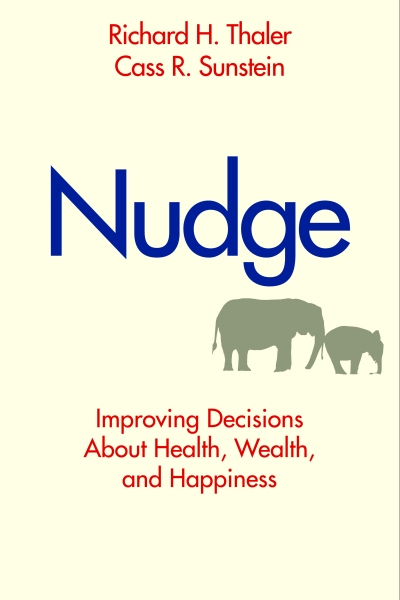In the past few years, it has become ever more apparent that the Homo economicus that Adam Smith postulated does not exist. For those of our readers who are not acolytes in the dismal science, Homo economicus is the “economic man” or a consumer who makes the perfectly rational decision and thus maximizes his self-interest. A great deal of ancient economic theory depended upon this conceptual man, but more and more research has proven that small details can entirely change people’s behavior. For example, by rearranging the placement of food in a cafeteria, a company (or school) can increase consumption of salad and decrease consumption of cake. This might also explain the current state of FoCo.
Three years ago, Richard Thaler and Cass Sunstein published a book called Nudge: Improving Decisions about Health, Wealth and Happiness wherein they espoused a philosophy known as libertarian paternalism. This would essentially be a state where choices would be designed so that individuals would make the best choice (or at least be more inclined to). Obviously, if you really want that cake, you can still get it – you just have to go look for it a bit harder first. Hence why the philosophy is somewhat libertarian.
Now, that choice architecture is beginning to emerge, but not through the government. Instead, private enterprise has begun to develop applications that will help individuals make better choices. HelloWallet, a new startup, attempts to instill financially responsible (and rational) behavior in its clients. A familiar name appears among the company’s advisors: Jonathan Zinman. Zinman is a professor in Dartmouth’s Economics Department and is particularly interested in the relationship between behavioral psychology and economics. Right now, Zinman is trying “to get a better understanding of what makes consumers tick.” Then, “…the model research-wise is to try to come up with innovations that provide a win-win for the consumer. . . and the service provider.” For example, HelloWallet discovered through research that if they personalized the account marked “college fund” with the name and photo of the future college student, individuals would put more money into the account.
Apparently Zinman et al. are attempting to play Frankenstein and create Homo economicus out of the puny scraps of meat that we Homo sapiens are. To make mankind act rationally. We shall see if they are successful. Personally, I am slightly wary of libertarian paternalism. Sure, less cake and more fiscal responsibility are all well and good – but it feels a little too Machiavellian to me. Where should we draw the line?
–J.P. Harrington


Be the first to comment on "Dartmouth College Professor Creating Homo Economicus"